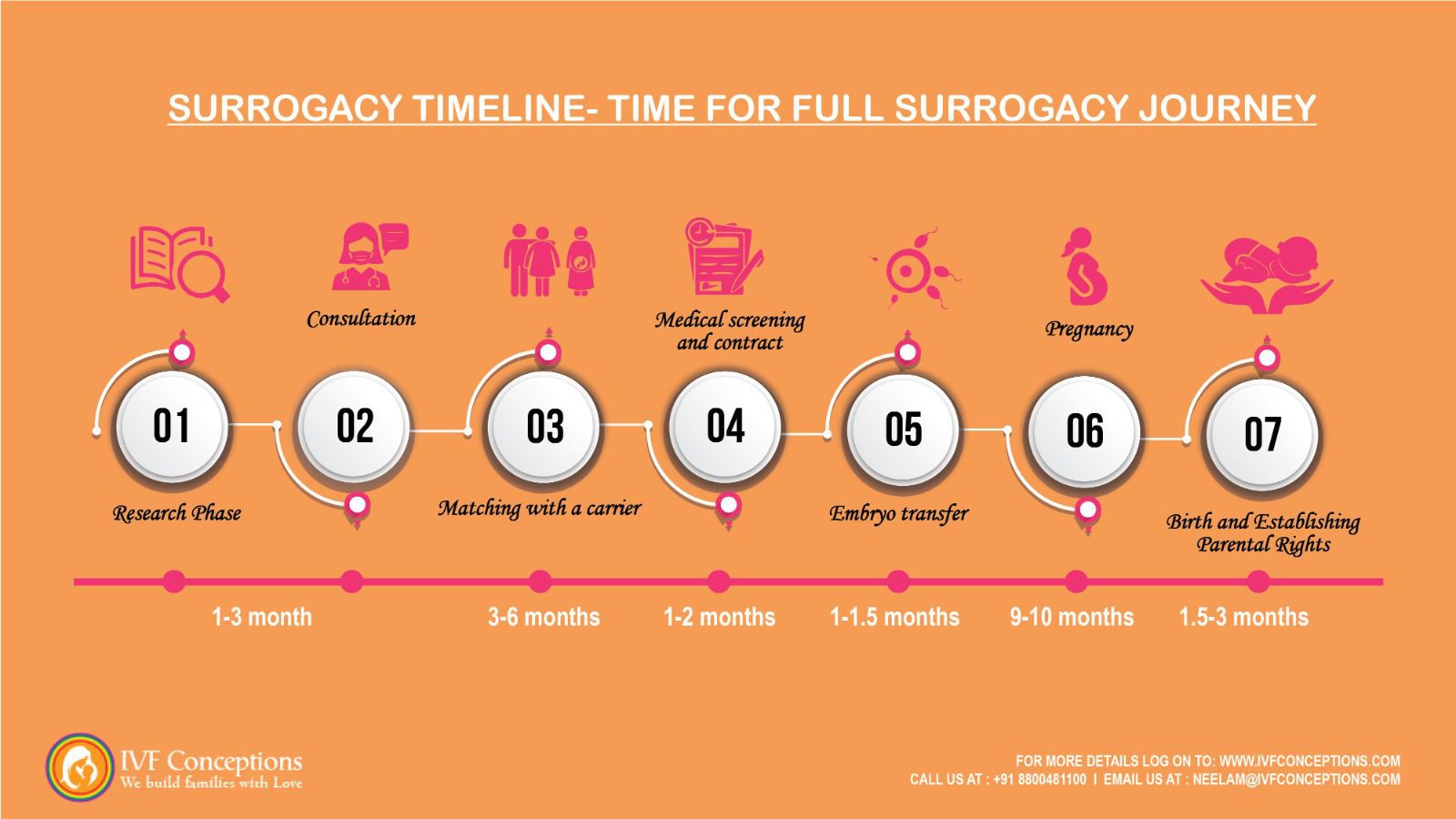Gestational Surrogacy In Texas: A Comprehensive Guide


Surrogacy in Texas has emerged as a ray of hope for single people and couples who want to enjoy the blessings of motherhood. In the center of Texas, the Lone Star State, surrogacy has become more and more popular as a workable option for individuals who are having trouble becoming pregnant naturally.
This lovely act of kindness enables singles and couples who are battling infertility, illnesses, or same-sex relationships to fulfill their desire to have children. Surrogacy in Texas serves a wide range of family configurations and needs by using both traditional and gestational procedures.
The regulations governing surrogacy in Texas are currently limited to married couples, regardless of whether they utilize donor gametes; nonetheless, courts have the authority to declare paternity for single people and unmarried couples on occasion. Furthermore, Texas’s rules about gestational surrogacy are limited to cases in which the mother is not related by blood to the child she is carrying.
Get in touch for a Free Surrogacy Consultancy:
📲 +91-8800481100 ( WhatsApp, Line, Viber)
Additional guides for surrogacy in the USA:
Surrogacy In the USA is Made Easy and Affordable.
How Much do Surrogacy Agencies Charge in the USA?
How Much Does Surrogacy Cost in USA ( 2023)?
Why USA Couples Should Do Surrogacy In Georgia, Europe?
Surrogacy Financing Options For Intended Parents
Why Surrogacy Costs So High And How To Manage It?


An Overview Of Surrogacy In Texas
Surrogacy in Texas is permitted. Notwithstanding Texas’s surrogacy regulations, which mandate court approval of surrogacy agreements before the surrogacy procedure, many courts approve the surrogacy agreement as part of the parentage declaration procedure.
Texas does not have any legislation about surrogacy that restricts a gestational surrogate’s ability to get basic pay for her services.
Traditional surrogacy in Texas is permitted. but is handled like an adoption, requiring a traditional surrogate to give up her parental rights 48 hours after the kid is delivered. Texas’s traditional surrogacy regulations stipulate that all documentation needs to be submitted following childbirth and that a woman’s basic pay may be limited.
A surrogacy contract is enforceable in a court of law if it satisfies all the conditions outlined by Texas surrogacy legislation.
Although parentage orders for surrogacy can be issued by courts to unmarried couples or people seeking surrogacy, the state statutes about surrogacy in Texas solely address married couples receiving such orders.
The availability of a pre-birth parentage order will likely be determined by the court and the judge handling the surrogacy case.
In Texas, intended parents who complete a surrogacy will be allowed to get a pre-birth or post-birth parentage order, negating the necessity for an adoption following birth. To establish their parental rights to their surrogate child, they will typically need to complete an adoption if they are unable to secure a parentage order.
In Texas, there are several restrictions on second-parent adoptions, although they are nonetheless permitted. Second-parent adoptions are often considered to be in the best interests of the adopted child by the court, making them a possibility for single intended parents.
However, married intending parents may adopt a child through a stepparent in Texas if they are unable to get a parentage order. The cost of surrogacy in Texas is in the range of $90,000 to $150,000 depending upon the services needed.
Surrogacy Laws In Texas

 A couple may decide to use a surrogate for a variety of reasons, such as being a same-sex couple, having one or both parents deal with health issues that prevent them from becoming parents, or fearing that one of them will carry a genetic condition to their children.
A couple may decide to use a surrogate for a variety of reasons, such as being a same-sex couple, having one or both parents deal with health issues that prevent them from becoming parents, or fearing that one of them will carry a genetic condition to their children.
Those who sign surrogacy contracts should pay close attention to the details of the arrangement. Because surrogacy agreements include a considerable amount of emotion on the part of all parties involved, they are often challenging.
Texas is regarded as one of the states that is most accepting of surrogates. The Texas Family Code has a section dedicated to surrogacy agreements. Any surrogacy agreement where the intended parents or the mother carrying the child live in the state of Texas is subject to these laws.
The legal framework and procedures of gestational surrogacy in Texas facilitate the successful transfer of an embryo to a surrogate mother. Both parties’ rights are safeguarded by the application of the law, which is reinforced by the legal process of a surrogacy contract.
Surrogacy Agreement and Texas Surrogacy Law
The intended parents’ rights must be upheld and protected by a legally binding surrogacy agreement. A court hearing and a petition must be filed and submitted by the parties for a surrogacy agreement to be validated. If it turns out that the intended parents provided the necessary medical documentation, a court will probably uphold the agreement.
If:
The agreement is deemed valid.
- The prospective parents finish a home study that involves clearance and a background check.
- The surrogate is medically competent to carry another pregnancy because she has already experienced one.
- The parties have agreed upon their respective financial obligations for the proceeding, and
- The intended mother is incapable of giving birth.
Only circumstances where the surrogate mother is not genetically related to the child are covered by Texas’ surrogacy regulations. Usually, married couples are the only ones covered by the law.
Parents and the surrogate should prepare and negotiate a contract outlining the financial and social requirements before starting the surrogacy process.
The financial pay for the surrogate is negotiated by the attorneys of both parties. Parents may pay to support the surrogate during the pregnancy if specified in the contract. The needs may include things like pregnancy clothing or other needs brought on by bed rest.
The contract’s social requirements section might bargain over attendance during prenatal visits and birth. As part of the social agreement, the surrogate’s duties may also include refraining from using drugs and alcohol.
International surrogacy guide:
Top 4 cheapest countries for surrogacy
Best Countries for Surrogacy – Top International Destinations
Risks of international surrogacy
Global International Surrogacy Options
IVF Conceptions Surrogacy Prices & Plans
Pre-Birth orders
Pre-birth orders are not necessary in Texas, but their absence could make the Gestational Surrogacy Agreement void and provide the surrogate with the opportunity to fight for the child’s rights.
Pre-birth orders can only be filed if the parents have:
- A doctor’s affidavit confirming the embryos’ transfer to the surrogate,
- Social media records related to surrogacy,
- signed documentation from the surrogate family giving up the child’s post-birth legal rights.
Adoption is one of the legal processes that may occur after birth when one or both of the intended parents are not biologically related to the child.


How Much Does Surrogacy Cost in Texas?
So, how much is surrogacy in Texas?
In Texas, surrogacy journeys typically cost between $100,000 and $150,000. Typically, it consists of:
- agency costs
- surrogate costs (including maternity clothes, housekeeping allowance, and surrogate expenses)
- IVF fees, prescription expenditures, intended parents’ medical and psychological evaluations, and surrogate screening
- newborn cash pay a service charge
SURROGACY AGENCY
Many services are offered by surrogacy agencies. In addition to making sure the procedure is carried out properly and in compliance with all legal standards, agencies also strive to make the entire experience as easy and stress-free as possible.
Price range estimate: $14,000 to $35,000.
SURROGATE EXPENSES
The woman who will bear the pregnancy—a surrogate—is known as the carrier. For each successful embryo transfer as well as for bearing the pregnancy, the surrogate receives a lump sum payment. In addition, agencies account for money to pay for travel costs for the planned embryo transfer and medical screening, a higher maternity clothing allowance in the event of multiple pregnancies, any associated monthly costs, and housekeeping during the final month of pregnancy (in certain cases only when the carrier is bedridden).
Price range estimate: $43,700 to $86,900
COST OF SCREENING
This involves checking the carrier’s and her spouse’s criminal histories and doing a psychiatric test to make sure the surrogate working with the agency is secure and prepared to participate in the process.
The estimated price range is $4,000 to $5,000.
ATTORNEY FEES
Early on in the process, a surrogacy lawyer is brought in to make sure everything is done legally and to outline everyone’s rights and responsibilities. An attorney will work with the agency to finalize the surrogacy contract, clarify local surrogacy regulations, and establish the parental rights of the intended parents. The intended parents will cover the costs of establishing parentage, preparing the contract, and hiring their own and the carrier’s attorneys.
Price range estimate: $3,750 to $15,500
As you can see, surrogacy requires a significant financial outlay, but the reward at the end of the journey is your precious child. You must discuss all expenses with the agency you select as an intended parent to make sure there are no hidden fees. The only way to appropriately lay out your budget is in this manner and keep surrogacy in Texas costs within budget.


Surrogacy Journey For Intended Parents in Texas
Texas is among the states that allow surrogacy. Texas allows gestational surrogacy under Tex. Fam. Code§ 160-751 through § 160-763. The legal parental rights of intended parents (IPs) to a child born to their contractual gestational surrogate (GS) are guaranteed by its laws. Before getting into a so-called gestational arrangement, there are two main aspects of Texas’s regulations about surrogate mothers that you should be aware of:
- The intended parents are entitled to contract with a gestational carrier in writing and to have that contract validated by a court.
- The intended parents may be named in the surrogacy agreement as the child’s legal parents if the child is born through the surrogacy agreement.
Gestational arrangements and egg donation are methods used by individuals and couples of various ages, backgrounds, and sexual orientations to start families. These varied intended parents could consist of the following:
- Heterosexual couples that have struggled with infertility
- Intended mothers, unable to bear children,
- Prospective parents who wish to avoid passing on to their offspring a genetic or medical problem
- commissioning couples who wish to give their child a genetic connection (same-sex intended parents)
Surrogacy Process In Texas
The procedure for surrogacy in Texas can often take between 15 and 18 months. Naturally, this period of time can change significantly based on your situation. The procedure could take an extra three to four months if you need to find an egg or sperm donor or make embryos. In the end, the surrogacy procedure is not a fast one.
During your surrogacy adventure, you will go through seven steps. These typical steps in surrogacy consist of:
- Determine whether or not surrogacy in Texas is the best option for you and your family.
- Locate a surrogacy agency in Texas to get ready for the surrogacy process.
- Look for a surrogate mother who possesses the traits you find admirable.
- Meet your legal criteria for surrogacy, see a surrogacy lawyer, and execute a contract.
- Launch the medical surrogacy procedure.
- Enjoy spending time with the surrogate before delivery.
- After the baby is delivered, get your baby and your legal parentage.
How To Find A Surrogate Mother In Texas? | Become a surrogate in Texas

 Choosing the appropriate surrogate is among the most crucial actions and choices intending parents will have to make during the surrogacy procedure.
Choosing the appropriate surrogate is among the most crucial actions and choices intending parents will have to make during the surrogacy procedure.
Some intended parents decide to use a surrogate that they are already familiar with, like a close friend or relative. For others, it requires a significant amount of time and energy to locate a surrogate.
Deciding to locate a surrogate independently or with the assistance of an agency is the first step in the process.
A surrogacy agency can assist you in finding women who have been vetted and authorized to carry surrogate pregnancies if you do not already know a surrogate mother.
Together, you and a surrogacy specialist will go over your objectives and choose a surrogate who best suits them.
Conclusion
For people who find it difficult to start a family naturally, surrogacy in Texas offers an alternative. Its laws allow married IPs who adhere to the statute’s formalities to use gestational surrogacy. As per the terms of the gestational surrogacy arrangement, the intended parents would be acknowledged as the parents of the child born. The birth certificate names only the biological parent if the parents are not married. Same-sex parents go through the same process.
If you’d like to learn more about IVF, Egg Donation, or surrogacy services globally, check out the rest of our website at IVF Conceptions. We offer legally secure and affordable surrogacy consulting services for FREE.
Get in touch for a Free Surrogacy Consultancy:
📲 +91-8800481100 ( WhatsApp, Line, Viber)
Related surrogacy Costs guides:
What is the average surrogacy cost?
How much does surrogacy cost in Ukraine?
How much does surrogacy cost in Georgia?
How much does surrogacy cost in India?
What is the Surrogacy Cost in Colombia?
What is Surrogacy cost in Mexico?
What is surrogacy cost with family members?

 Frequently Asked Questions about Surrogacy in Texas
Frequently Asked Questions about Surrogacy in Texas
1. What is surrogacy and is it legal in Texas?
Surrogacy is a method of assisted reproduction where a woman carries and delivers a baby for another person or couple. In Texas, surrogacy is legal as long as certain requirements are met, and the process is carried out within the framework of the state’s laws and regulations.
2. What is the difference between gestational surrogacy and traditional surrogacy?
Gestational surrogacy involves the implantation of an embryo created from the egg and sperm of the intended parents or donors into the surrogate, while traditional surrogacy involves the surrogate using her own egg, making her the biological mother of the child. In Texas, gestational surrogacy is the preferred method due to the legal and emotional complexities associated with traditional surrogacy.
3. What are the legal implications of surrogacy in Texas for intended parents?
Intended parents in Texas need to understand the parental rights and legal obligations associated with surrogacy agreements. It’s important to work with a knowledgeable surrogacy attorney to ensure all legal aspects are properly addressed and the process follows the Texas surrogacy law.
4. How does the surrogacy process work for couples or individuals in Texas?
The surrogacy process in Texas typically involves finding a suitable surrogate, going through medical and psychological evaluations, and drafting a surrogacy agreement that outlines the rights and responsibilities of all parties involved. It’s also crucial for the intended parents to understand the pre-birth order process in Texas to establish legal parentage before the birth of the child.
5. Can same-sex couples or individuals become parents through surrogacy in Texas?
Same-sex couples and individuals in Texas can pursue surrogacy to realize their dreams of becoming parents.
FAQs for surrogacy in the USA

 Q1. What is the process of surrogacy in the USA for intended parents?
Q1. What is the process of surrogacy in the USA for intended parents?
Ans. The surrogacy process in Texas for intended parents involves multiple steps, starting with a consultation to discuss your story and questions. Working with an experienced agency in surrogacy guides you through milestones like choosing an agency, finding a surrogate, medical screening, and legal contracts.
Q2. How much does surrogacy in the USA cost?
Ans. The cost of surrogacy in the USA varies depending on the program you choose. The cost of surrogacy starts at $150,000 to $200,000 based on the specific services needed and the compensation of the surrogate mother and egg donor. For low-cost surrogacy, it is advised to consider “independent surrogacy or private surrogacy”, which costs less but requires more time and management.
Q3. What are some affordable surrogacy options?
Ans. Affordable surrogacy options are:
- Opting for independent surrogacy arrangements.
- Using a surrogate mother within the family or friend circle.
- Considering the international surrogacy countries with affordable, low-cost surrogacy programs like Mexico, Colombia, Argentina, Georgia, and Ukraine.
Q4. What are the requirements for becoming a surrogate mother in the USA?
Ans. The requirements for becoming a surrogate mother are:
- To become a surrogate mother, you must meet certain criteria.
- You should have delivered a child of your own and be parenting at least one child.
- Uncomplicated pregnancies and deliveries are necessary, as documented by medical records.
- Age requirements are between 21 and 44 years old.
- The Body Mass Index (BMI) is typically no higher than 33.
- Surrogates should be citizens, legal residents, or legal immigrants of the United States.
- medically and psychologically in sound condition.
Q5. Can you help us find a low-cost surrogate mother?
Ans. Yes, we have been working in the international surrogacy domain for 14 year and have good networks of fertility clinics and surrogacy agencies globally that are trusted to offer world-class services. We have long expertise and experience in the best and most legal international surrogacy countries.
Disclaimer:
All legal information on this website is intended only as a guide and is not a replacement for the opinions of licensed legal professionals/Medical professionals. Some information may have changed since the time of publication. We advise you to consult a licensed attorney/Medical expert with authority in fertility/surrogacy processes.
